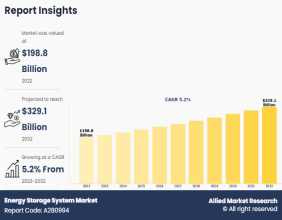Highlights
- AI inference chips, designed for day-to-day AI operations, are emerging as an alternative to training-focused GPUs.
- Startups and traditional chipmakers are developing efficient AI inference chips to reduce costs and energy consumption.
- AI inference focuses on applying pre-trained knowledge, catering to businesses beyond tech giants.
The AI chip industry has been shaped by graphics processing units (GPUs), pioneered by Nvidia (NEO:NVDA), which dominate the market due to their ability to handle computationally intensive AI training tasks. However, GPUs are less suited for inference tasks, creating room for specialized AI inference chips designed to reduce computing costs.
Startups like Cerebras, Groq, and d-Matrix, alongside established chipmakers such as AMD and Intel, are focusing on inference chips tailored to run AI systems efficiently. These chips prioritize fast response times and energy efficiency, making them attractive for broader adoption beyond AI research and development.
Understanding AI Inference
AI inference is the application phase of machine learning. Once an AI system is trained using large datasets, it relies on inference to process new information and generate outputs, such as text or images. This task requires less computational power than training, making it inefficient for traditional GPUs.
Inference chips are designed for this lighter workload. They offer cost-effective solutions for businesses looking to integrate generative AI into their operations without building extensive infrastructure. This has attracted interest from enterprises aiming to deploy AI-powered tools for tasks such as video generation and personalized customer services.
AI Inference Chip Development
D-Matrix, a notable player in this sector, recently introduced its Corsair chip, designed to optimize inference workloads. The Corsair idntegrates advanced cooling systems and is manufactured by Taiwan Semiconductor Manufacturing Company. This innovation reflects a growing trend of designing specialized hardware for specific AI tasks.
The production and testing processes for these chips involve a global collaboration, with design in Santa Clara, assembly in Taiwan, and final testing in California. The meticulous testing ensures the chips meet performance standards before deployment.
Expanding Markets for AI Inference Chips
Tech giants such as Amazon and Google have been the primary buyers of GPUs for AI training. However, inference chipmakers aim to cater to a broader range of industries, including Fortune 500 companies. These businesses seek to adopt generative AI technologies without investing in costly infrastructure.
AI inference hardware is also being developed for smaller-scale deployments, including desktops, laptops, and smartphones. This shift could democratize access to AI tools and reduce the environmental footprint of running large-scale AI models.
Broader Implications
The development of AI inference chips highlights the importance of creating efficient and sustainable solutions for running AI systems. By focusing on inference rather than training, chipmakers are addressing energy consumption concerns while enabling widespread use of AI technologies across industries.



